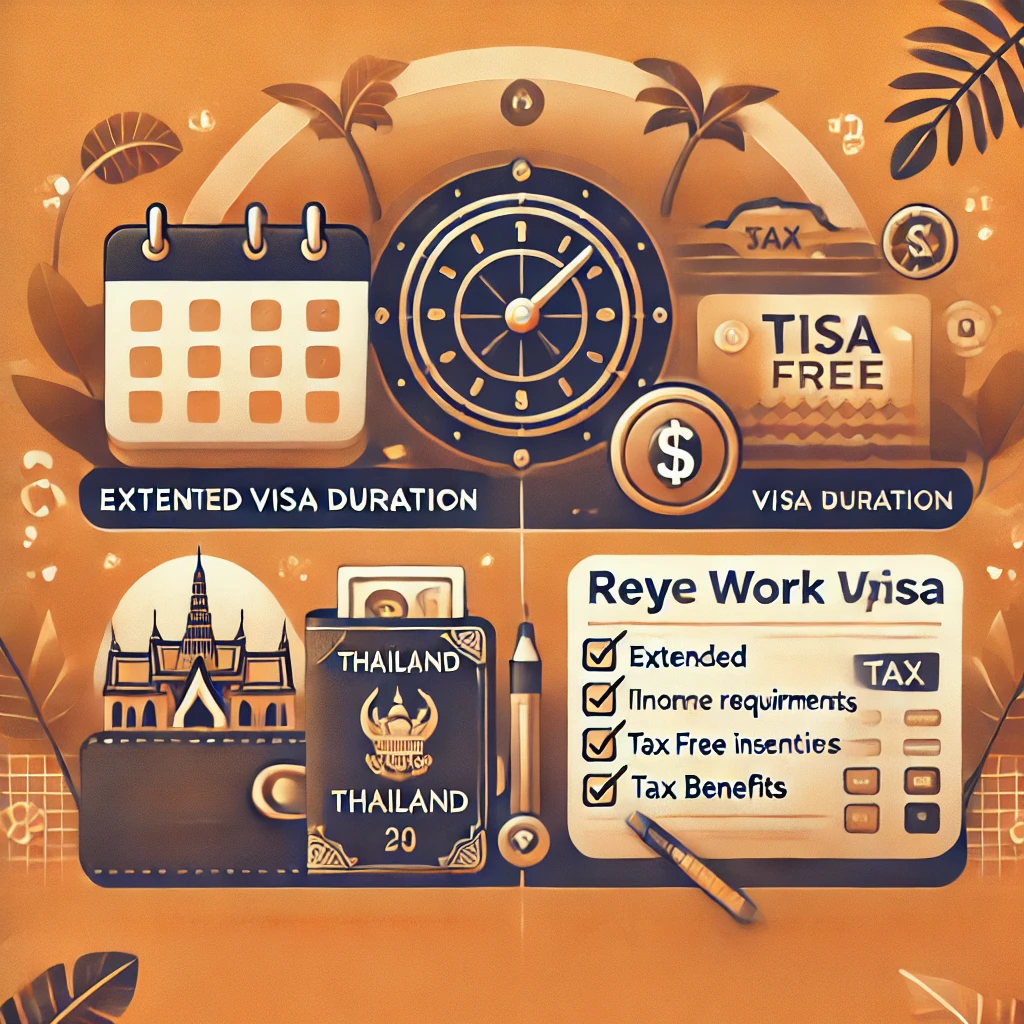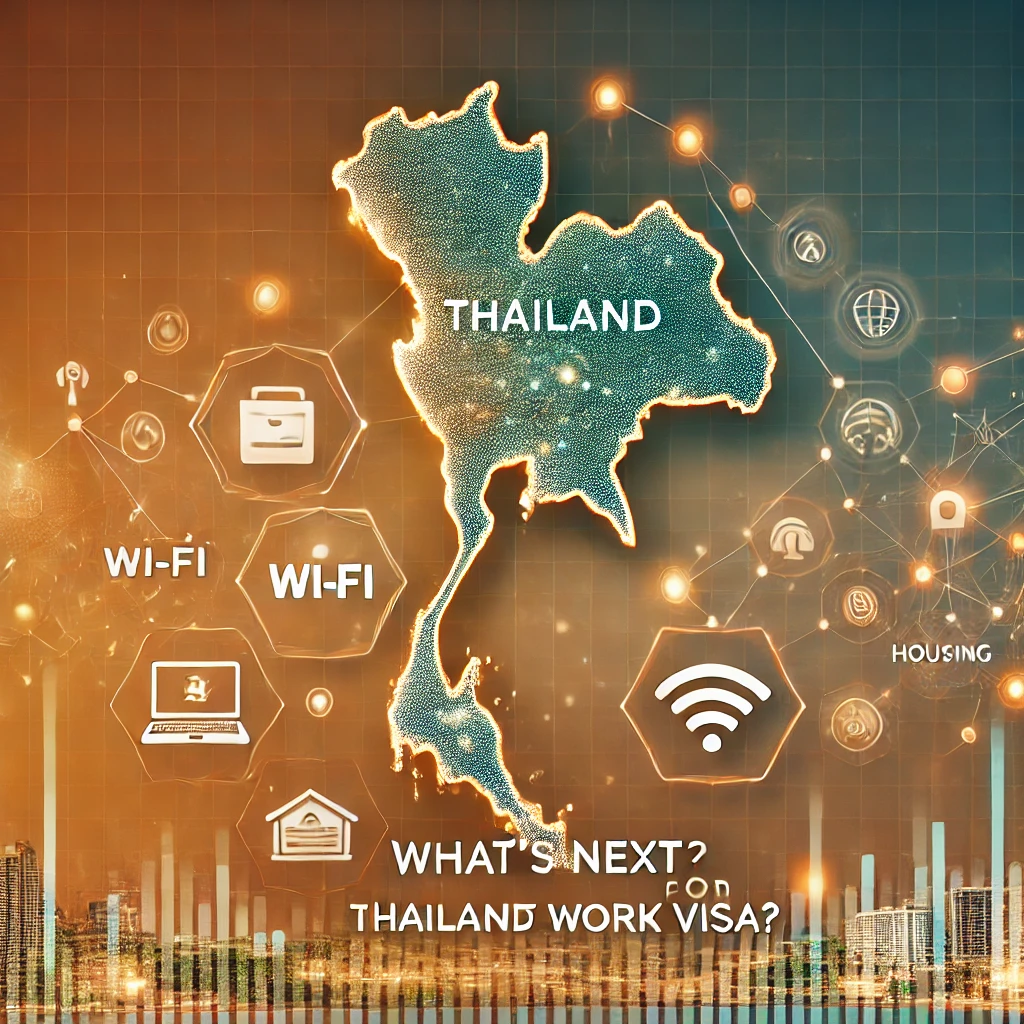Introduction to Thailand Remote Work Visa
The introduction of the “Thailand Remote Work Visa” marks a significant step forward in the country’s efforts to attract digital nomads and remote workers from around the globe. As remote work continues to gain traction in the post-pandemic era, Thailand has positioned itself as an attractive destination for professionals seeking a balance between work and leisure. The new visa offers a streamlined process for remote workers, providing them with the legal framework to live and work in Thailand with ease. In this blog post, we will explore the key aspects of this visa, its benefits, and what it means for remote workers looking to relocate to Thailand.
What’s New in Thailand Remote Work Visa?
Thailand has long been a favorite destination for travelers, thanks to its vibrant culture, stunning landscapes, and affordable cost of living. Now, with the introduction of the Thailand Remote Work Visa, the country is set to become a hub for digital nomads. This new visa is part of a broader strategy by the Thai government to boost the economy by attracting foreign professionals who contribute to the local economy while working for companies outside of Thailand.
The Thailand Remote Work Visa is designed to simplify the process for remote workers and digital nomads who wish to stay in Thailand for extended periods. Below is an overview of the key features of this new visa:

| Feature | Details |
|---|---|
| Eligibility Criteria | Open to remote workers and digital nomads employed by foreign companies |
| Visa Duration | Up to 10 years, with the possibility of renewal |
| Income Requirement | Minimum annual income requirement of $80,000 |
| Tax Benefits | Tax exemption on income earned outside of Thailand |
| Application Process | Online application with a streamlined process for approval |
This visa is a game-changer for digital nomads looking for a stable and long-term base in Southeast Asia.
Key Updates You Need to Know

1. Extended Visa Duration
One of the most attractive features of the Thailand Remote Work Visa is its extended duration. Unlike other visas that require frequent renewals, this visa allows remote workers to stay in Thailand for up to 10 years. This long-term option provides digital nomads with the stability they need to establish a more permanent base in Thailand without the hassle of frequent visa runs or renewals.
2. Income Requirement and Financial Criteria
To qualify for the Thailand Remote Work Visa, applicants must meet specific financial criteria, including a minimum annual income of $80,000. This requirement ensures that visa holders can support themselves while living in Thailand without relying on local employment opportunities. The financial threshold is designed to attract high-earning professionals who can contribute to the local economy through their spending and investment.
3. Tax Benefits and Incentives
One of the major incentives of the Thailand Remote Work Visa is the tax benefits it offers. Visa holders are exempt from paying taxes on income earned outside of Thailand. This tax exemption is a significant draw for remote workers who earn their income from foreign sources, making Thailand an even more attractive destination for digital nomads seeking a favorable tax environment.
4. Simplified Application Process
The Thai government has made the application process for the Remote Work Visa as straightforward as possible. The entire process can be completed online, with clear guidelines provided for each step. This streamlined approach reduces the complexity and time required to obtain the visa, making it easier for remote workers to transition to living and working in Thailand.
What’s Next?

As Thailand continues to embrace the remote work trend, we can expect further developments in policies and infrastructure to support digital nomads. Future initiatives may include the expansion of coworking spaces, enhanced internet connectivity, and additional services tailored to the needs of remote workers. Thailand’s commitment to attracting remote professionals indicates that this visa is just the beginning of a broader strategy to position the country as a leading destination for digital nomads.
Moreover, as more remote workers take advantage of this visa, there could be a ripple effect on the local economy, leading to increased demand for housing, services, and amenities. This growth could further drive the development of remote work-friendly environments in cities and regions across Thailand.
Conclusion
The Thailand Remote Work Visa represents a forward-thinking approach to the changing dynamics of the global workforce. By offering an extended visa duration, favorable tax conditions, and a simplified application process, Thailand is poised to become a top destination for remote workers and digital nomads. This new visa not only benefits individual professionals but also contributes to the broader economic goals of the country by attracting a skilled and financially secure workforce.
As remote work continues to redefine traditional employment models, Thailand’s proactive measures position it at the forefront of this global trend. For remote workers seeking a vibrant, affordable, and supportive environment, the Thailand Remote Work Visa offers an opportunity to live and work in one of the world’s most desirable locations.
Key Points:
- Thailand has introduced a new Remote Work Visa targeting digital nomads and remote workers.
- The visa allows for a stay of up to 10 years, with a minimum annual income requirement of $80,000.
- Visa holders benefit from tax exemptions on income earned outside of Thailand.
- The application process is streamlined and can be completed online.
- Thailand is positioning itself as a leading destination for remote workers, with further developments expected.
References
- Deutsche Welle. (2024). Thailand launches remote work visa to attract digital nomads. https://www.dw.com/en/thailand-visa-remote-work/a-70003598
- Thai Government Public Relations Department. (2024). New visa for remote workers announced. Retrieved from https://thailand.prd.go.th
- Forbes. (2024). Best countries for digital nomads in 2024. Retrieved from https://www.forbes.com/best-countries-digital-nomads/
- Bangkok Post. (2024). Thailand’s strategy to attract remote workers. Retrieved from https://www.bangkokpost.com/business/strategy-attract-remote-workers
- YouTube Video: “How to Apply for Thailand’s Remote Work Visa” (Visa Guide Channel, 2024)
